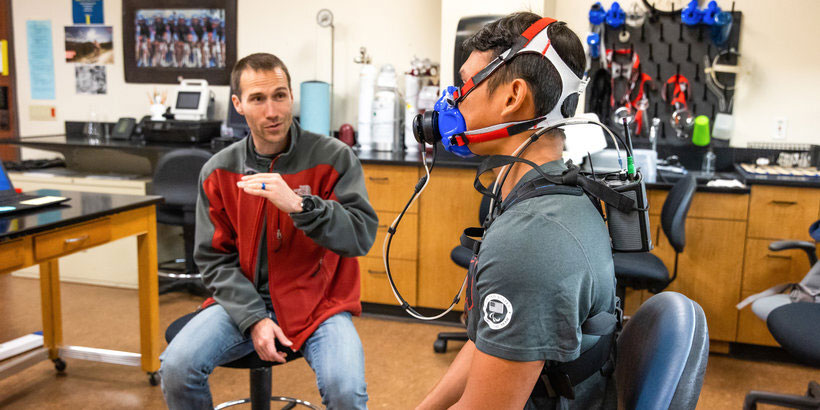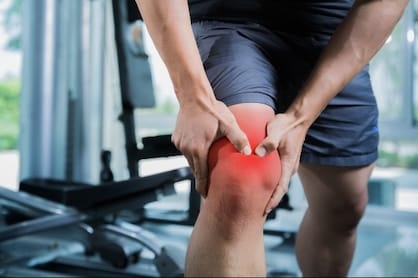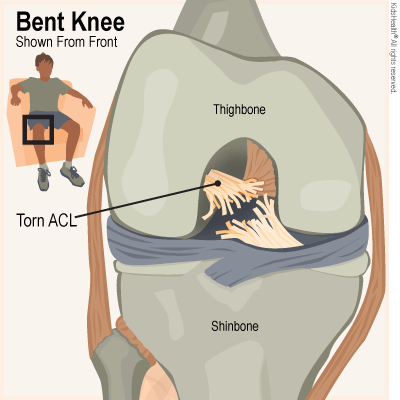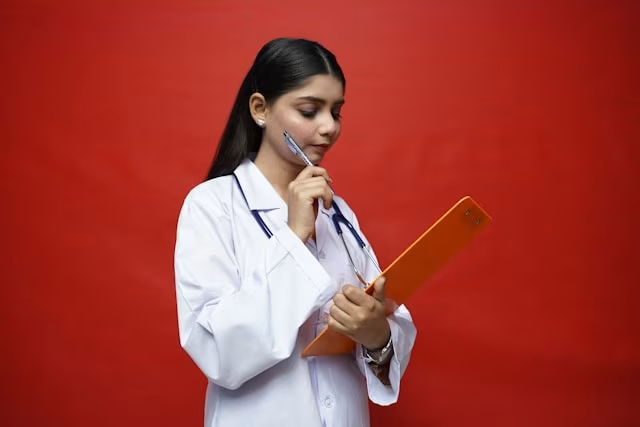Sports injuries are a common occurrence in Singapore, where fitness is a top priority for many residents.
With initiatives like Active SG and widespread availability of sports facilities, Singaporeans of all ages actively participate in popular sports such as soccer, cycling, swimming, badminton, and running to stay fit and healthy.
However, sports participation inevitably comes with the risk of injury.
As the saying goes, sports and injuries are like two sides of the same coin. No matter which sport you play or how carefully you approach it, the risk of injury remains.
Being a successful sportsperson isn’t just about performing at your best but also about effectively managing injuries and recovering quickly when they occur.
Understanding Sports Medicine

Sports Medicine is a specialized branch of healthcare focused on preventing, diagnosing, treating, and rehabilitating injuries related to sports and exercise.
This medical specialty is particularly important in Singapore’s active community, where maintaining an active lifestyle is emphasized.
What Sports Medicine Physicians Do
Sports Medicine physicians are primary caregivers who specialize in treating athletes and active individuals. They provide comprehensive care focused on:
- Injury Prevention and Management: Developing strategies to prevent injuries and treating sports-related injuries when they occur
- Performance Enhancement: Helping athletes improve their physical capabilities safely
- Rehabilitation: Creating personalized recovery programs to help patients return to their sport
- Nutritional Guidance: Providing advice on proper nutrition for optimal athletic performance
- Injury Education: Teaching patients about their conditions and how to prevent recurrence
Sports Medicine physicians differ from general orthopedic surgeons in that they focus specifically on issues related to physical activity and sports performance, though many orthopedic surgeons also specialize in sports medicine.
Read more: Which Orthopedic Doctor in Singapore Should You Consider?
Preventing Sports Injuries
Prevention remains superior to treatment when addressing sports injuries, making preventive measures crucial for all athletes.
Proper warm-up routines should always precede any game or exercise session to adequately prepare muscles and joints for physical activity.
Gradual training progression helps avoid overexertion during initial sessions, allowing the body to adapt safely as intensity builds over time.
Learning and practicing correct techniques specific to your sport reduces injury risk while improving performance outcomes.
Wearing appropriate protective gear suited to your particular activity provides essential safety barriers against common injuries.
Playing on even, appropriate surfaces minimizes environmental injury risks that uneven or unsuitable terrain can create.
Listening to your body signals proves vital for injury prevention, requiring rest when needed and avoiding the dangerous practice of ignoring pain signals.
Medical clearance before returning to sports after any injury ensures safe participation and prevents re-injury or complications from premature activity resumption.
Related article: Knee Pain in Singapore: Causes, Treatment & Prevention
Common Sports Injuries in Singapore

Singapore’s active population frequently encounters various sports injuries. Understanding these common issues can help in prevention and early treatment:
Minor Injuries
- Ankle Sprains: Often occurs during sudden direction changes in sports like basketball and soccer
- Groin Pulls: Common in sports requiring quick lateral movements
- Hamstring Strains: Frequently seen in runners and athletes who sprint
- Knee Injuries: Including meniscus tears and patellofemoral pain syndrome
- Tennis Elbow: Repetitive strain injury affecting the outer part of the elbow
- Shin Splints: Common in runners, especially those training on hard surfaces
- Back Injuries: Can result from improper form or overtraining
Read more: Tennis Elbow Treatment in Singapore: Causes, Symptoms, Recovery
Serious Injuries

- Ligament Tears: Such as ACL (Anterior Cruciate Ligament) tears in the knee
- Dislocations: Particularly shoulder dislocations in contact sports
- Fractures: Both traumatic fractures and stress fractures from overuse
- Sports Hernia: Causing chronic groin pain, sometimes difficult to diagnose
Read more: ACL Reconstruction Surgery in Singapore: Causes, Costs
The Healing Process for Sports Injuries
The healing process for sports injuries varies depending on the type and severity of the injury. However, most follow a general pattern:
- Acute Phase (1-3 days): Focus on minimizing swelling and pain through RICE (Rest, Ice, Compression, Elevation)
- Subacute Phase (3-21 days): Gentle movement and rehabilitation exercises begin
- Remodeling Phase (3 weeks to 6 months): Progressive strengthening and return to sport
It’s crucial to consult a sports medicine specialist rather than attempting self-treatment based on friendly or unsolicited advice. A qualified sports doctor can accurately gauge the seriousness of an injury and prescribe appropriate treatment.
How Sports Medicine Helps
Sports injuries encompass a wide spectrum from minor bruises and sprains to severe tears, dislocations, and fractures, all requiring tailored treatment approaches.
Effective treatment combines multiple therapeutic modalities, beginning with appropriate medication to manage pain and control inflammation during the acute injury phase.
Physical therapy through supervised rehabilitation exercises forms the cornerstone of recovery, progressively restoring function and strength.
Topical treatments address surface injuries effectively, while specialized equipment such as braces, supports, or assistive devices provide necessary stability during healing.
Minimally invasive procedures, including targeted joint injections or arthroscopic surgery, offer advanced treatment options for specific conditions.
When structural damage requires comprehensive repair, surgical intervention provides definitive treatment for severe injuries.
A multidisciplinary care approach typically delivers the most comprehensive treatment outcomes, involving sports physicians, orthopedic specialists, physiotherapists, sports trainers, dietitians, podiatrists, sports psychologists, and occupational therapists working collaboratively to address all aspects of injury recovery and performance restoration.
This might help: Best Orthopedic Doctor in JB for Singaporeans
Top Sports Doctors in Singapore
Singapore is home to many highly qualified sports medicine specialists. Here’s a rundown of some of the best sports doctors in Singapore, covering both public and private practice:
1. Dr. Mizan Marican
Dr. Mizan Marican is widely regarded as one of Singapore’s leading orthopedic surgeons specializing in sports medicine. As an avid golfer and footballer himself, he brings personal insight to treating sports injuries. Senior doctors often refer their family members to him—a strong validation of his expertise.
Specialization:
- Knee replacement (TKR)
- Hip and pelvis joint replacements
- Sports injuries (ACL tears, tennis elbow, frozen shoulder)
- Trauma surgery
Philosophy: Dr. Mizan is known for exploring non-surgical options first, such as rehabilitation or medication, before recommending surgery—an approach that patients particularly appreciate.
Professional Background:
- Published numerous papers in respected medical journals
- Chaired multiple orthopedic conferences on arthroplasty and arthroscopy
- Expertise in MAKOplasty, advanced robotic techniques, and keyhole surgery
- Serves as a Captain in the Singapore Armed Forces
- Received an award from the President of Singapore in 2016
2. Dr. Alan Cheung
Dr. Alan Cheung is both an orthopedic surgeon and a sportsman, giving him firsthand understanding of sports-related injuries.
Specialization:
- Sports injuries
- Joint reconstruction
- Robotic surgery (Navio and RoboDoc)
His charismatic approach and specialized knowledge make him a sought-after sports doctor in Singapore.
3. Dr. Tan Chyn Hong
Dr. Tan is renowned for getting sportsmen “back on their feet” through his expertise in knee and shoulder problems.
Specialization:
- Meniscus surgery
- Ligament reconstruction
- Cartilage regeneration
Professional Background:
- Former head of the Sports Medicine division at the National University Hospital Singapore
- Extensive experience with athletes of all levels
You might like: Frozen Shoulder Treatment in Singapore: Symptoms, Recovery, Prevention
4. Dr. Lee Eu Jin
Dr. Lee is an orthopedic surgeon with subspecialty training in hip and knee surgery.
Specialization:
- Hip and knee surgery
- Sports injuries
- Anterior Cruciate Ligament Repairs
- Unicompartmental Knee Arthroplasty
Training: Received specialized training in Bern, Switzerland, giving him international perspective and techniques.
5. Dr. Lin Heng An
Dr. Lin is the Medical Director and Consultant Orthopaedic Surgeon with Fellowship in Sports Medicine from the University of Toronto.
Professional Background:
- Chief Team Physician for Singapore Slingers (ASEAN Basketball League)
- Previously served as the Fellow physician for the NBA G-League team, Raptors 905
- Appointed Chief of Sports Services in SKH in 2019
- Clinical Assistant Professor appointed by Duke-NUS
Specialization:
- Sports-related injuries
- Arthroscopic surgeries
- Ligament and multi-ligament reconstructions
- Lower limb trauma
6. Dr. Lim Baoying
Dr. Lim Baoying integrates her passion for sports into her medical career as a sports physician.
Professional Background:
- Associate Consultant at Changi General Hospital
- Completed Sport Medicine Advanced Specialist Training
- Instrumental in major sporting events, including the Youth Olympics Games and Southeast Asian Games
Personal Connection to Sports:
- Avid runner and cyclist with achievements in marathons and cycling championships
- Contributes to sports medicine knowledge and injury rehabilitation courses
Related article: Hip Replacement Surgery in Singapore: Cost, Risks
Comprehensive Sports Medicine Services in Singapore
Sports medicine facilities in Singapore provide an extensive array of specialized services designed to meet the diverse needs of athletes and active individuals.
These comprehensive services include management of sports and exercise-related injuries, ensuring that patients receive targeted care for their specific conditions.
Sports physiotherapy and rehabilitation programs form the cornerstone of recovery, helping patients regain strength and mobility through evidence-based treatments.
Additional specialized services encompass clinical Pilates sessions that focus on core stability and movement quality, therapeutic sports massage for muscle recovery and injury prevention, and structured strength and conditioning programs tailored to individual fitness goals.
Sports podiatry addresses foot and lower limb concerns specific to athletic activities, while sports psychology services support mental health and performance optimization.
Nutritional support is provided through sports dietetics consultations and comprehensive weight management programs that align with athletic performance goals.
Pre-participation screening services help identify potential health risks before engaging in sports activities, while exercise testing and prescription ensure safe and effective training protocols.
Advanced sports science services, including VO2 Max testing and video gait analysis, provide detailed insights into athletic performance and biomechanical efficiency.
Choosing the Right Sports Doctor
Selecting an appropriate sports medicine physician in Singapore requires careful consideration of several key factors that will impact the quality of care and treatment outcomes.
Specialization represents the most critical factor, as patients should seek doctors who specifically focus on treating their particular type of injury or the affected body part, ensuring expertise in the relevant medical area.
Experience with athletes in your specific sport proves invaluable, as different sports present unique injury patterns and recovery challenges that require specialized knowledge.
Thoroughly reviewing qualifications becomes essential, particularly checking for relevant medical credentials and fellowship training in sports medicine, which demonstrates advanced expertise in the field.
Treatment approach varies significantly among practitioners, with some doctors emphasizing surgical interventions while others focus primarily on non-surgical, conservative treatment methods.
Patient reviews and success stories provide valuable insights into the doctor’s effectiveness and patient satisfaction levels, offering real-world perspectives on treatment outcomes.
Hospital affiliation considerations include evaluating which medical facilities the doctor practices at, as this affects access to advanced diagnostic equipment and surgical facilities if needed.
Finally, insurance coverage verification ensures that the selected doctor’s services align with your insurance plan, preventing unexpected financial burdens during treatment.
Advanced Treatment Options
Singapore’s sports medicine clinics offer various advanced treatment options:
Minimally Invasive Surgical Techniques
- Arthroscopic Surgery: Using small incisions and a camera to repair damaged tissues
- Robotic-Assisted Surgery: Including MAKOplasty for precise joint replacements
- Computer-Aided Joint Replacement: For improved accuracy and outcomes
Non-Surgical Treatments
- Platelet-Rich Plasma (PRP) Therapy: Using the patient’s own blood components to accelerate healing
- Shockwave Therapy: For chronic tendon problems
- Advanced Rehabilitation Techniques: Including specialized equipment and protocols
Diagnostic Technologies
- High-Quality Imaging: Including MRI, CT, and ultrasound
- Video Gait Analysis: To identify movement patterns contributing to injury
- VO2 Max Testing: To assess cardiorespiratory fitness
Sports Injury Rehabilitation in Singapore
Rehabilitation constitutes a fundamental component of sports injury treatment in Singapore, following a systematic approach designed to optimize recovery outcomes and prevent re-injury.
The process begins with an initial comprehensive assessment that thoroughly evaluates both the specific injury and the patient’s overall physical condition, establishing a baseline for treatment planning.
Goal setting follows this assessment, involving the establishment of clear, achievable recovery milestones that provide direction and motivation throughout the rehabilitation journey.
Personalized programs are then developed, incorporating tailored exercises and treatments that address the individual’s specific needs, injury type, and athletic goals.
Progressive loading protocols ensure that activity levels increase gradually as healing progresses, preventing setbacks while promoting optimal tissue adaptation and strength development.
Sport-specific training components are integrated into the program, incorporating movements and skills directly relevant to the patient’s particular sport or activity.
Return-to-play testing represents a crucial phase where comprehensive assessments determine the patient’s readiness to resume full sports activities safely.
This testing evaluates strength, flexibility, coordination, and sport-specific skills to ensure complete recovery.
Finally, preventive strategies education provides patients with knowledge and techniques to prevent re-injury, including proper warm-up protocols, conditioning exercises, and biomechanical awareness training that supports long-term athletic health and performance.
The Role of Multidisciplinary Care
Effective sports medicine often involves a team approach. A typical multidisciplinary sports medicine team in Singapore might include:
- Sports Medicine Physicians: Oversee overall treatment
- Orthopedic Surgeons: Perform surgical interventions when necessary
- Physiotherapists: Design and implement rehabilitation programs
- Sports Trainers: Assist with conditioning and strength development
- Dietitians: Provide nutritional guidance
- Podiatrists: Address foot and ankle biomechanics
- Sports Psychologists: Help with the mental aspects of injury and recovery
- Occupational Therapists: Assist with returning to daily activities
This comprehensive approach ensures that all aspects of an athlete’s health and performance are addressed.
Insurance and Cost Considerations
Sports medicine treatments, especially surgical procedures like knee replacements, can be costly. Many clinics in Singapore work with insurance providers to help cover these expenses. It’s advisable to:
- Check with your insurance provider about coverage for sports medicine services
- Discuss payment options with the clinic’s financial team
- Inquire about government subsidies or assistance programs
- Consider sports-specific insurance if you’re a serious athlete
Conclusion
Sports medicine plays a vital role in Singapore’s active community, helping athletes and fitness enthusiasts prevent injuries, recover effectively when injuries occur, and optimize their performance. With world-class specialists and comprehensive care options available, Singaporeans have access to exceptional sports medicine services.
Whether you’re a professional athlete, weekend warrior, or simply someone who enjoys staying active, understanding the landscape of sports medicine in Singapore can help you make informed decisions about your health and recovery. Remember that early intervention by qualified specialists is key to effectively addressing sports injuries and returning to the activities you love.
Frequently Asked Questions
What is the difference between a sports doctor and an orthopedic surgeon?
A sports doctor or sports medicine physician specializes in the non-surgical treatment of musculoskeletal problems, with particular focus on helping patients maximize function and minimize disability from sports or exercise-related injuries.
An orthopedic surgeon specializes in the surgical treatment of musculoskeletal issues. While all sports doctors understand orthopedics, not all orthopedic surgeons specialize in sports medicine.
In Singapore, many orthopedic surgeons pursue additional fellowship training in sports medicine to offer comprehensive care.
Some practitioners, like Dr. Mizan Marican, are orthopedic surgeons who have specialized in sports medicine, combining both areas of expertise.
How long does it take to recover from common sports injuries?
Recovery times vary significantly depending on the type and severity of injury, as well as individual factors such as age, overall health, and adherence to rehabilitation protocols. As a general guideline:
- Minor sprains and strains: 2-6 weeks
- Muscle tears: 3 weeks to 3 months
- ACL reconstruction: 6-9 months for full return to sport
- Shoulder dislocations: 3-6 months
- Stress fractures: 6-8 weeks
- Tennis elbow: 6 weeks to 6 months
Your sports doctor will provide a more personalized timeline based on your specific condition and progress during rehabilitation.
When should I see a sports doctor rather than a general practitioner?
Determining whether to consult a sports medicine specialist or general practitioner depends on the nature and complexity of your athletic concerns.
Sports doctors become the preferred choice when you have sustained an injury during sports or exercise activities, as they possess specialized knowledge of sport-specific injury patterns and treatment protocols.
Additionally, recurring or chronic pain that significantly affects your athletic performance warrants specialized attention from professionals who understand the unique demands placed on active individuals.
Guidance on returning to sports after an injury represents another crucial area where sports medicine specialists excel, providing evidence-based protocols that minimize re-injury risk while optimizing performance restoration.
Athletes seeking sport-specific advice on injury prevention benefit from the specialized knowledge that sports doctors possess regarding biomechanics, training loads, and risk factors specific to different athletic activities.
Specialized treatments such as joint injections or platelet-rich plasma (PRP) therapy require advanced training and expertise that sports medicine specialists routinely provide.
Performance optimization for competitive athletes represents another specialized area where sports doctors can offer sophisticated analysis and intervention strategies.
When symptoms persist despite initial treatment by a general practitioner, consulting a sports medicine specialist often provides access to more advanced diagnostic tools and treatment options.
While general practitioners effectively handle many basic sports injuries, sports medicine specialists possess advanced training specifically focused on the unique physiological and psychological needs of active individuals, making them invaluable for complex or persistent athletic-related health concerns.ally focused on the unique needs of active individuals.
Are sports medicine services covered by insurance in Singapore?
Sports medicine services in Singapore enjoy varying levels of insurance coverage depending on your specific provider and plan details.
Medisave typically covers certain surgical procedures and hospital stays related to sports injuries, providing a valuable financial resource for more intensive treatments.
Private insurance coverage depends heavily on your individual plan specifications, with several important considerations affecting your potential costs.
Surgical procedures generally receive more comprehensive coverage compared to non-surgical treatments, reflecting the higher costs and medical necessity often associated with operative interventions.
Physiotherapy sessions may include coverage limitations regarding the number of sessions approved, requiring patients to verify their specific allowances before beginning treatment programs.
Specialized treatments such as PRP therapy might not receive coverage under all insurance plans, as these newer treatments may be considered experimental or elective by some providers.
Pre-existing conditions can significantly affect coverage eligibility, with some plans excluding treatment for conditions that existed before policy initiation.
Checking with both your insurance provider and the sports medicine clinic before beginning treatment proves essential for understanding potential out-of-pocket costs and avoiding unexpected financial surprises during your care journey.
What should I expect during my first visit to a sports doctor?
Your initial consultation with a sports doctor in Singapore follows a comprehensive assessment protocol designed to establish an accurate diagnosis and effective treatment plan.
The appointment begins with a detailed medical history that includes specific questions about your injury mechanism, sports participation patterns, training history, and general health status.
A comprehensive physical examination focuses primarily on the injured area and related anatomical structures, allowing the physician to assess tissue damage, functional limitations, and compensatory movement patterns.
Assessment of your movement patterns, strength levels, and flexibility provides crucial information about functional deficits that require attention during rehabilitation.
Diagnostic tests such as X-rays, ultrasound, or MRI may be performed during the first visit or scheduled for a subsequent appointment, depending on the clinical findings and suspected diagnosis.
The physician will discuss a preliminary diagnosis based on the examination findings and explain the proposed treatment plan, including timeline expectations and potential treatment options.
Immediate symptom management recommendations help provide relief while longer-term treatment strategies are implemented. Referrals to other specialists, such as physiotherapists, may be provided as part of a comprehensive multidisciplinary approach to your care.
The appointment typically requires 30-45 minutes, and bringing previous medical records, imaging results, and a complete list of current medications enhances the efficiency and accuracy of your assessment.
How can I prevent sports injuries while exercising in Singapore’s climate?
Singapore’s hot and humid tropical climate presents unique challenges for athletes and requires specific injury prevention strategies to maintain safe exercise practices.
Adequate hydration becomes even more critical than in cooler climates, requiring increased fluid intake before, during, and after exercise to compensate for elevated sweat rates and electrolyte losses.
Gradual acclimatization proves essential for individuals new to Singapore’s weather conditions, allowing the body to adapt physiologically to heat stress through improved thermoregulation and cardiovascular efficiency.
Timing your exercise sessions strategically, such as early morning or evening hours, helps avoid the peak heat periods that typically occur during midday hours.
Appropriate clothing selection involving lightweight, breathable fabrics that effectively wick moisture away from the skin helps maintain comfort and prevents overheating during physical activity.
Sun protection through sunscreen application and sun-protective clothing becomes crucial for outdoor activities, reducing the risk of heat-related illness and skin damage.
Performance expectations require adjustment in high heat and humidity conditions, as these environmental factors naturally reduce exercise capacity and increase perceived exertion levels.
Indoor facilities with air conditioning provide valuable alternatives for high-intensity workouts when outdoor conditions become too challenging.
Monitoring for signs of heat-related illness, including dizziness, nausea, confusion, or excessive fatigue, enables early recognition and treatment of potentially serious conditions.
Proper warm-up and cool-down routines become especially important in warm climates, as they help prepare the body for exercise stress and facilitate recovery afterward.
Building adequate recovery days into your training schedule acknowledges that exercising in heat places additional physiological stress on the body, requiring more time for complete restoration between sessions.
What qualifications should I look for in a sports doctor in Singapore?
Identifying qualified sports medicine practitioners in Singapore requires understanding the essential credentials and training that ensure competent care.
A basic medical degree, either MBBS or MD, forms the foundation of medical knowledge necessary for sports medicine practice.
Specialist training in relevant fields such as Orthopedic Surgery, Family Medicine, or Rehabilitation Medicine provides the specialized knowledge base required for treating athletic injuries effectively.
Membership in the Royal College of Surgeons (MRCS) or Fellowship (FRCS) demonstrates advanced surgical training and competency for practitioners who perform operative procedures.
A Master of Medicine (MMed) in Orthopedic Surgery indicates specialized postgraduate training in musculoskeletal conditions commonly encountered in sports medicine.
Fellowship training specifically in Sports Medicine represents the highest level of specialized education in this field, providing comprehensive knowledge of exercise physiology, biomechanics, and sport-specific injury management.
Fellowship of the Academy of Medicine Singapore (FAMS) indicates recognition by Singapore’s premier medical organization and adherence to high professional standards.
Additional certifications in sports-specific treatments, such as injection techniques, concussion management, or performance optimization, demonstrate ongoing professional development and specialized expertise.
Membership in professional organizations like the Asian Federation of Sports Medicine indicates active participation in the sports medicine community and commitment to continuing education.
Beyond formal qualifications, consider the practitioner’s experience with athletes in your specific sport and their treatment philosophy, particularly whether they emphasize surgical or non-surgical approaches to injury management.
Do I need a referral to see a sports medicine specialist in Singapore?
In Singapore’s healthcare system, you generally do not need a referral to see a sports medicine specialist in private practice. You can directly schedule an appointment with any private sports clinic or specialist. However, there are some considerations:
- For public hospitals, a referral from a polyclinic or general practitioner is typically required and can reduce your waiting time and cost
- Some insurance plans may require a referral from a primary care physician to cover specialist visits
- Referrals can be beneficial as your GP can send relevant medical history and test results ahead of your visit
If you’re unsure, check with both your insurance provider and the sports medicine clinic you plan to visit.
What is the role of physiotherapy in sports injury treatment?
Physiotherapy constitutes an indispensable component of comprehensive sports injury treatment and rehabilitation programs in Singapore.
Pain management through various therapeutic modalities, including ultrasound, electrical stimulation, and manual therapy techniques, provides immediate relief while supporting the healing process.
Restoration of normal joint range of motion and flexibility addresses the stiffness and movement limitations that commonly follow sports injuries, preventing long-term functional deficits.
Strengthening programs for both injured and supporting muscle groups help restore normal force production capacity while addressing imbalances that may have contributed to the initial injury.
Movement pattern correction identifies and addresses faulty biomechanics that may have predisposed to injury or could lead to re-injury if left unaddressed.
Sport-specific rehabilitation exercises progressively prepare athletes for the demands of their particular sport, ensuring safe and effective return to full participation.
Education on proper movement techniques and injury prevention strategies empowers patients to take active roles in their recovery and long-term athletic health.
Hands-on treatments such as joint mobilization and soft tissue massage address specific tissue restrictions and promote healing through improved circulation and tissue quality.
Home exercise program development provides patients with tools for continued progress between physiotherapy sessions and after formal treatment concludes.
Sports physicians and physiotherapists typically maintain close collaborative relationships, with physicians providing diagnosis and treatment direction while physiotherapists implement detailed rehabilitation programs through regular treatment sessions.rough regular sessions.
Are there specialized sports medicine services for children and young athletes in Singapore?
Singapore provides specialized sports medicine services specifically designed for children and young athletes, recognizing the unique considerations required for growing individuals.
Growth plate considerations represent a critical aspect of pediatric sports medicine, as injuries that might be minor in adults can significantly affect bone growth and development in children.
Age-appropriate training recommendations help prevent overuse injuries by ensuring that training loads and intensities match the physical and psychological development stages of young athletes.
Sport specialization guidance based on physical development stages helps parents and coaches make informed decisions about when and how children should focus on specific sports.
Concussion management protocols specific to developing brains recognize that children may require different assessment tools and recovery timelines compared to adult athletes.
Nutritional advice for growing athletes addresses the unique energy and nutrient requirements of individuals who are simultaneously growing and training, ensuring optimal development and performance.

